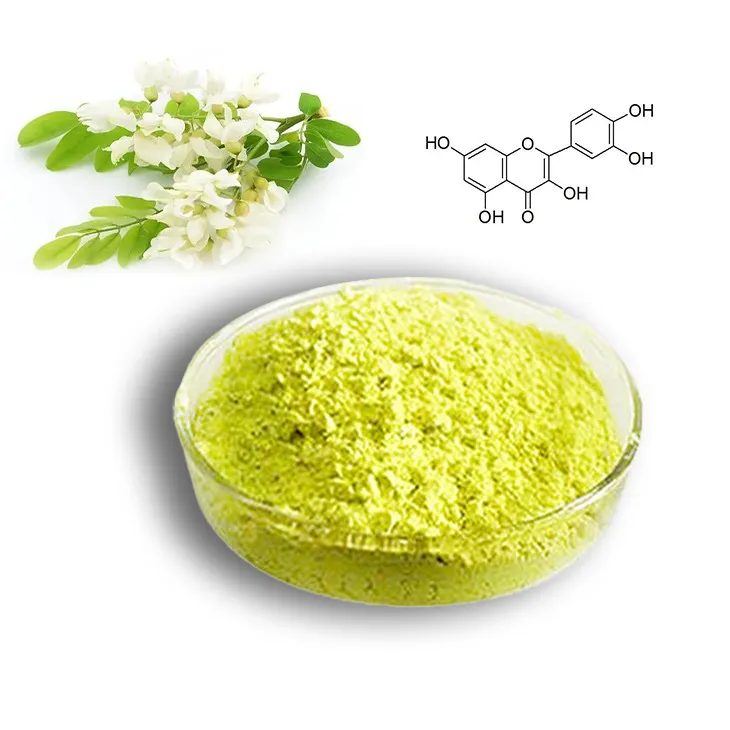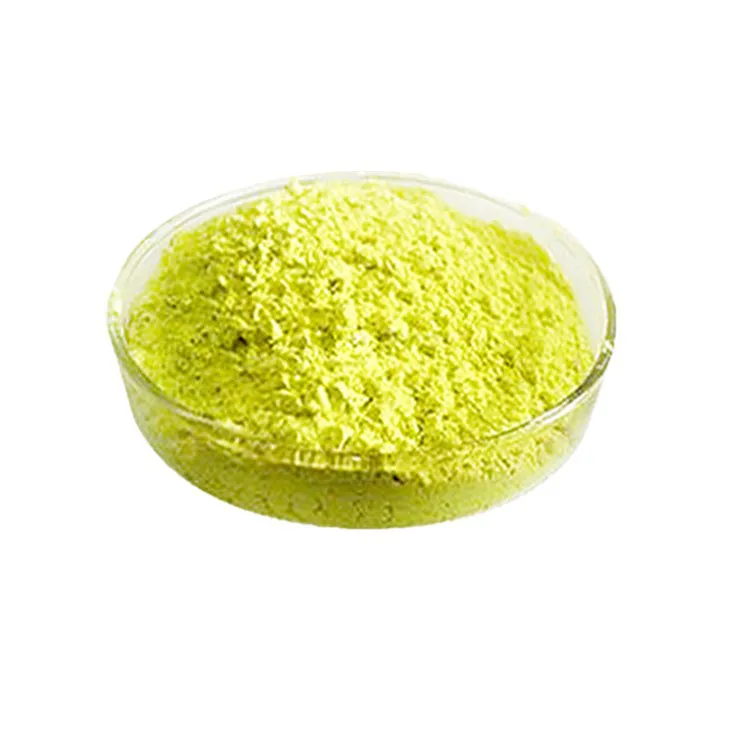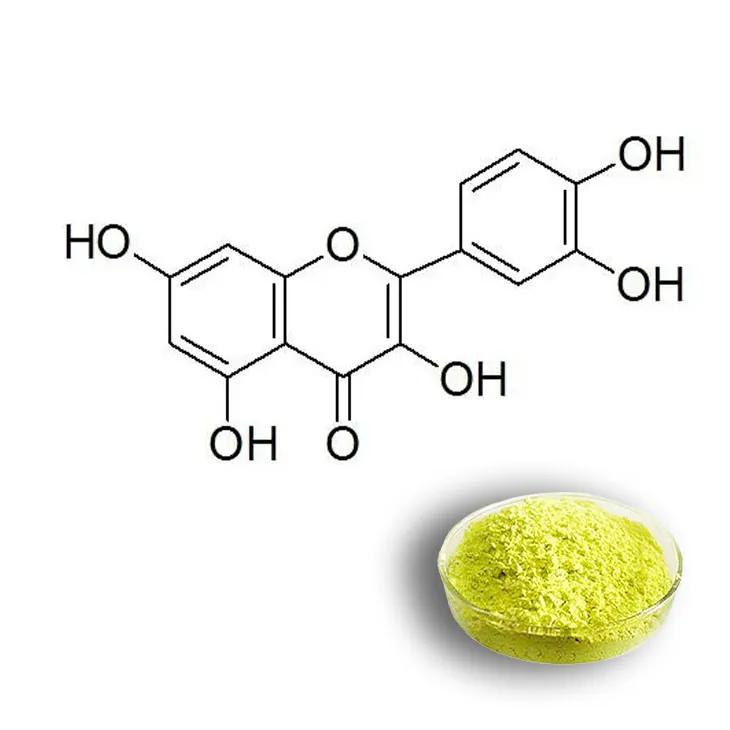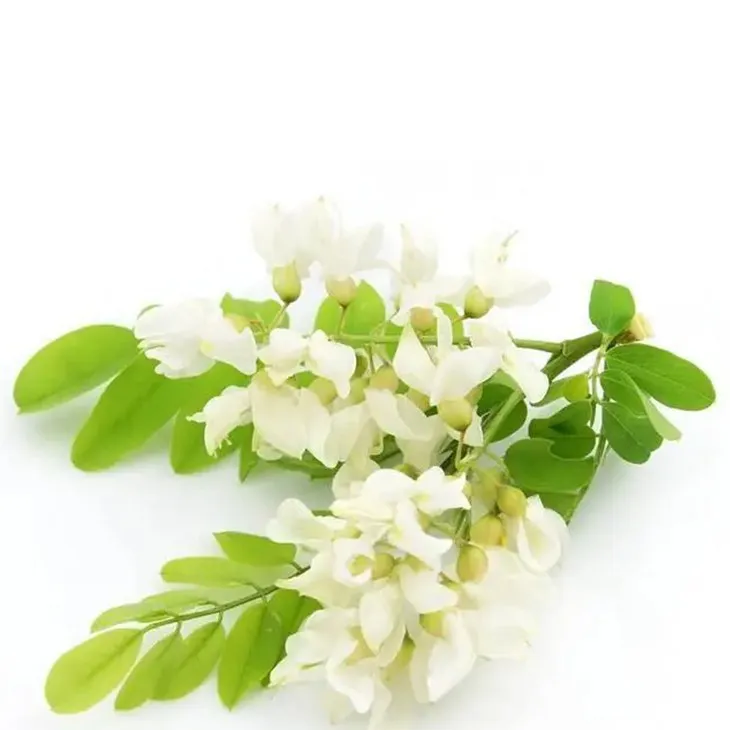- 0086-571-85302990
- sales@greenskybio.com
Six amazing effects of quercetin for creating perfect skin!
2024-11-13

1. Introduction to Quercetin
Quercetin is a flavonoid that has been garnering significant attention in the field of skin health. It is naturally found in various fruits, vegetables, and grains. This compound is not only important for overall health but also brings about a plethora of benefits specifically for the skin.

2. The Powerful Antioxidant Capacity of Quercetin
Protecting from environmental stressors: The environment exposes our skin to a multitude of harmful factors on a daily basis. These include ultraviolet (UV) radiation, pollution, and toxins. Quercetin's antioxidant properties are crucial in combating these environmental stressors. Antioxidants work by neutralizing free radicals, which are unstable molecules that can cause damage to skin cells. Free radicals are generated by exposure to UV rays from the sun and pollutants in the air. When quercetin neutralizes these free radicals, it helps to prevent the breakdown of collagen and elastin in the skin. Collagen and elastin are essential proteins that keep the skin firm and elastic.
Preventing premature aging: Premature aging of the skin is a major concern for many people. Signs of premature aging include wrinkles, fine lines, and age spots. Quercetin helps to prevent premature aging by reducing oxidative stress in the skin. Oxidative stress occurs when there is an imbalance between free radicals and antioxidants in the body. By providing antioxidant protection, quercetin helps to maintain the skin's youthful appearance. It also stimulates the production of new skin cells, which helps to keep the skin looking fresh and rejuvenated.

3. Anti - Inflammatory Effects of Quercetin
Alleviating skin discomfort: Skin inflammation can be caused by a variety of factors, such as allergies, irritants, and infections. Inflammatory skin conditions can cause redness, itching, and pain. Quercetin has anti - inflammatory properties that can help to alleviate these symptoms. It works by inhibiting the production of inflammatory mediators in the body, such as cytokines and prostaglandins. By reducing inflammation, quercetin can help to soothe irritated skin and promote the healing process.

4. Fortifying the Epidermal Barrier with Quercetin
Retaining skin moisture: The epidermal barrier is the outermost layer of the skin that acts as a protective shield. It helps to prevent water loss from the skin and protects against external invaders. A healthy epidermal barrier is essential for maintaining hydrated skin. Quercetin helps to fortify the epidermal barrier by promoting the production of ceramides and lipids in the skin. Ceramides and lipids are important components of the epidermal barrier that help to keep the skin moisturized. By strengthening the epidermal barrier, quercetin helps to prevent dryness and keep the skin soft and supple.

5. Quercetin's Role in Acne Management
Modulating sebaceous gland activity: Acne is a common skin condition that affects people of all ages. It is caused by a combination of factors, including excess sebum production, clogged pores, and bacteria. Sebaceous glands in the skin produce sebum, which is an oily substance that can clog pores and lead to acne breakouts. Quercetin can help to manage acne by modulating the activity of sebaceous glands. It helps to regulate sebum production, preventing the skin from becoming too oily. By reducing sebum production, quercetin also helps to prevent clogged pores and the growth of acne - causing bacteria.
6. Importance of Quercetin for Collagen Building
Enhancing skin firmness: Collagen is the most abundant protein in the skin and is responsible for its structure and firmness. As we age, the production of collagen in the skin decreases, leading to sagging and wrinkling. Quercetin plays an important role in collagen building. It stimulates the production of collagen in the skin cells, helping to maintain the skin's firmness. By promoting collagen production, quercetin also helps to improve the skin's elasticity and reduce the appearance of wrinkles.
7. Improving Skin Color Uniformity with Quercetin
For a beautiful and healthy - looking skin: Uneven skin color can be a result of various factors, such as sun damage, hyperpigmentation, and melasma. Quercetin can help to improve skin color uniformity. It works by inhibiting the production of melanin, which is the pigment responsible for skin color. By reducing melanin production, quercetin can help to fade dark spots and even out the skin tone, giving the skin a more beautiful and healthy - looking appearance.
8. Conclusion
In conclusion, quercetin offers six amazing effects for creating perfect skin. Its antioxidant capacity protects the skin from environmental stressors and premature aging, while its anti - inflammatory effects alleviate skin discomfort. Quercetin also aids in fortifying the epidermal barrier, retaining skin moisture, and plays a role in acne management by modulating sebaceous gland activity. Additionally, it is crucial for collagen building, enhancing skin firmness, and works on improving skin color uniformity for a beautiful and healthy - looking skin. Incorporating foods rich in quercetin or using skincare products containing this flavonoid can be a great way to promote skin health.
FAQ:
Question 1: How does quercetin protect skin from premature aging?
Quercetin has a powerful antioxidant capacity. Antioxidants can neutralize free radicals in the environment, which are often the main cause of skin damage and premature aging. By scavenging these free radicals, quercetin helps prevent damage to skin cells, thereby protecting the skin from premature aging.
Question 2: In what way does quercetin alleviate skin discomfort?
Quercetin has anti - inflammatory effects. Skin discomfort is often related to inflammation in the skin. Quercetin can reduce this inflammation, thus alleviating skin discomfort such as redness, swelling, and itching.
Question 3: How does quercetin help in retaining skin moisture?
Quercetin aids in fortifying the epidermal barrier. A strong epidermal barrier can prevent water loss from the skin. When the epidermal barrier is strengthened by quercetin, the skin is better able to retain moisture.
Question 4: Can you explain how quercetin is involved in acne management?
Quercetin is involved in acne management by modulating sebaceous gland activity. Excessive sebum production by sebaceous glands can clog pores and lead to acne. Quercetin can regulate this activity, reducing sebum production and thus helping in acne management.
Question 5: Why is quercetin crucial for collagen building?
Collagen is an important protein for skin firmness. Quercetin has certain properties that are beneficial for the production and maintenance of collagen. It can stimulate the cells involved in collagen synthesis, thus playing a crucial role in collagen building.
Question 6: How does quercetin improve skin color uniformity?
The exact mechanism by which quercetin improves skin color uniformity is not fully understood. However, it may be related to its overall effects on skin health. By reducing inflammation, protecting from environmental stressors, and promoting healthy skin cell function, it may contribute to a more even skin tone, resulting in improved skin color uniformity.
Related literature
- The Role of Quercetin in Skin Health and Disease"
- "Quercetin: A Promising Flavonoid for Skin Care"
- "Beneficial Effects of Quercetin on Skin Structure and Function"
- ▶ Hesperidin
- ▶ Citrus Bioflavonoids
- ▶ Plant Extract
- ▶ lycopene
- ▶ Diosmin
- ▶ Grape seed extract
- ▶ Sea buckthorn Juice Powder
- ▶ Fruit Juice Powder
- ▶ Hops Extract
- ▶ Artichoke Extract
- ▶ Mushroom extract
- ▶ Astaxanthin
- ▶ Green Tea Extract
- ▶ Curcumin
- ▶ Horse Chestnut Extract
- ▶ Other Product
- ▶ Boswellia Serrata Extract
- ▶ Resveratrol
- ▶ Marigold Extract
- ▶ Grape Leaf Extract
- ▶ New Product
- ▶ Aminolevulinic acid
- ▶ Cranberry Extract
- ▶ Red Yeast Rice
- ▶ Red Wine Extract
-
Red Wine Extract
2024-11-13
-
Medicinal Marshmallow Extract
2024-11-13
-
Milk Thistle Extract
2024-11-13
-
Eucommia Ulmoides Extract
2024-11-13
-
Kelp Extract Powder
2024-11-13
-
Polygonum multiflorum extract
2024-11-13
-
Peppermint Extract Powder
2024-11-13
-
Polygonum Cuspidatum Extract
2024-11-13
-
Cactus Extract
2024-11-13
-
Tormentil Extract
2024-11-13





















